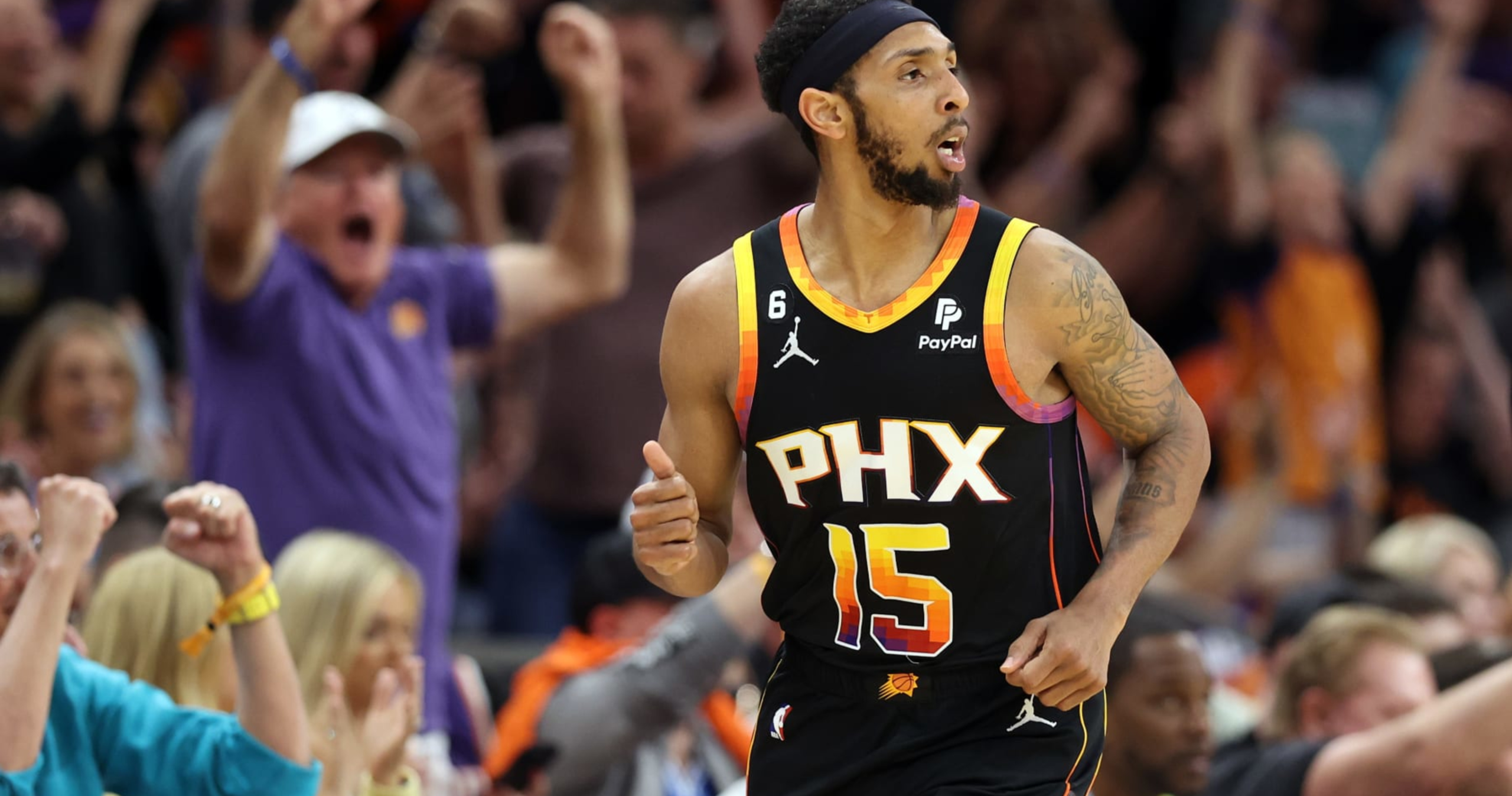Sports
Top Landing Spots for NBA Free Agent Guard Cameron Payne – Bleacher Report

Just under two months after the Phoenix Suns sent him to the San Antonio Spurs for a future conditional second-round pick, Cameron Payne is on the verge of becoming a free agent who can sign with anyone in the NBA.
The San Antonio Spurs are waiving veteran guard Cam Payne, sources tell ESPN. Payne recently arrived in trade from Suns and now gets a chance to join a contending team that can give him a bigger role. <a href="https://t.co/cA13XSxp3j">pic.twitter.com/cA13XSxp3j</a>
And once he clears waivers, there are multiple contenders (or fringe contenders) who could talk themselves into signing Payne to a low-value contract.
After struggling to maintain a consistent role during his first four NBA seasons, Payne has developed into one of the game’s steadier backup ball-handlers over the last four seasons with Phoenix.
In that stretch, he’s averaged 9.8 points and 4.2 assists, hit 38.4 percent of his threes and made 28 spot starts. The Suns were plus-6.9 points per 100 possessions when he was on the floor and plus-5.0 when he was off.
Teams who think a little more depth at point (or combo) guard would put them over the top should be interested.
The Boston Celtics could certainly think that Payton Pritchard is ready to step into an expanded role following the three-team trade that cost them Marcus Smart, but Pritchard thriving in that role isn’t guaranteed.
Payne’s wingspan is over three inches longer than Pritchard’s, which makes him a more realistic option to replace some percentage of Smart’s defense. He’s played almost twice as many playoff minutes, and his production over the course of Pritchard’s career is better too.
Over the last three seasons, Payne’s box plus/minus is comfortably better. And on a per-possession basis, he averages more points, assists and steals. In fact, his assist rate almost doubles Pritchard’s.
On a team with plenty of scoring from Jayson Tatum, Jaylen Brown and newcomer Kristaps Porziņģis, having a guard with a bit more of a pass-first mentality makes sense.
Earlier this summer, the Cleveland Cavaliers lost backup point guard Ricky Rubio for personal reasons.
“I have decided to stop my professional activity to take care of my mental health,” Rubio said in a statement. “I want to thank all the support I have received from the [Spanish Basketball Federation] to understand my decision. Today #LaFamilia makes more sense than ever. Thank you.”
In spite of Donovan Mitchell’s ability to take some of the lead ball-handler’s responsibility from Darius Garland, Rubio’s departure leaves a pretty big hole in Cleveland’s rotation.
Caris LeVert could also take on some of those minutes, but he’s certainly more of a scorer and a wing. Ty Jerome might help too, but neither is as safe an option as Payne.
He has playoff experience that could help a Cavs team that’s probably on that fringe contender’s tier. And he had large (and positive) impacts on the Suns’ average for points per 100 possessions in two of his last three seasons there.
Overall, during his time in Phoenix, the team scored 116.5 points per 100 possessions when he played and 114.9 when he didn’t.
For a Cleveland squad that put up just 110.4 when Mitchell and Garland were both out of the game last season, that kind of impact could be huge.
This one might not make as much sense after the Damian Lillard trade we’ve all assumed will happen actually happens. But we’re now two months beyond the trade request, and Lillard is still a member of the Portland Trail Blazers.
If that deal never materializes (and even if it does and decimates the Miami Heat’s depth), Payne could help a team currently relying heavily on 37-year-old Kyle Lowry.
Right now, the only primary ball-handlers you can reasonably expect to be in the rotation are Lowry, Tyler Herro and Jimmy Butler, two of whom are as much wings as guards.
Payne could easily step into the role occupied by Gabe Vincent last season, and he might be better at it too.
Over the last two seasons, Payne has significantly better marks than Vincent in box plus/minus, points per possession, assists per possession and rebounds per possession.
And thanks to his time with Devin Booker in Phoenix, he also has plenty of experience playing with a wing who handles the ball and morphing into more a floor spacer or secondary attacker.
Right now, the Milwaukee Bucks’ options for backup point guard include A.J. Green, TyTy Washington Jr. and Lindell Wigginton, none of whom have been meaningful members of any NBA rotation. They’ve combined for just 1,064 minutes in the league.
In a pretty limited role and on a team with ball-handling from Jrue Holiday, Khris Middleton and Giannis Antetokounmpo, there’s certainly a chance one of those three suddenly becomes helpful, but Payne may be a shortcut to more positive minutes from the backcourt.
And here again, his experience as an off-ball player with the Suns would come in handy.
If tasked with sharing the offense with one or two of the aforementioned stars, Payne would be comfortable operating as a catch-and-shoot threat (who could also attack late closeouts).
Over the last four years, Payne has hit 38.4 percent of his three-point attempts.
The Minnesota Timberwolves are the third straight team on the slideshow with a past-his-prime point guard set to log a ton of minutes for a team with title (or at least deep-playoff-run) aspirations.
In Minnesota’s case, the guard is Mike Conley, who’ll turn 36 in December and is backed up by Jordan McLaughlin (who’s averaged 3.8 points with a below-average effective field-goal percentage over the last two years) and Shake Milton (who’s more of an off- or combo-guard).
Conley was an undeniably good and stabilizing force for a Wolves team that took a game off the eventual champion Denver Nuggets in the first round of the playoffs, but he’s nearing his 40s and has only averaged 59.3 appearances per season over the last four years (and 53.2 over the last six).
A little more of a sure thing behind Conley wouldn’t be a bad idea, and Payne is exactly the kind of backup who could play 20-25 minutes, occasionally start and be just that.









